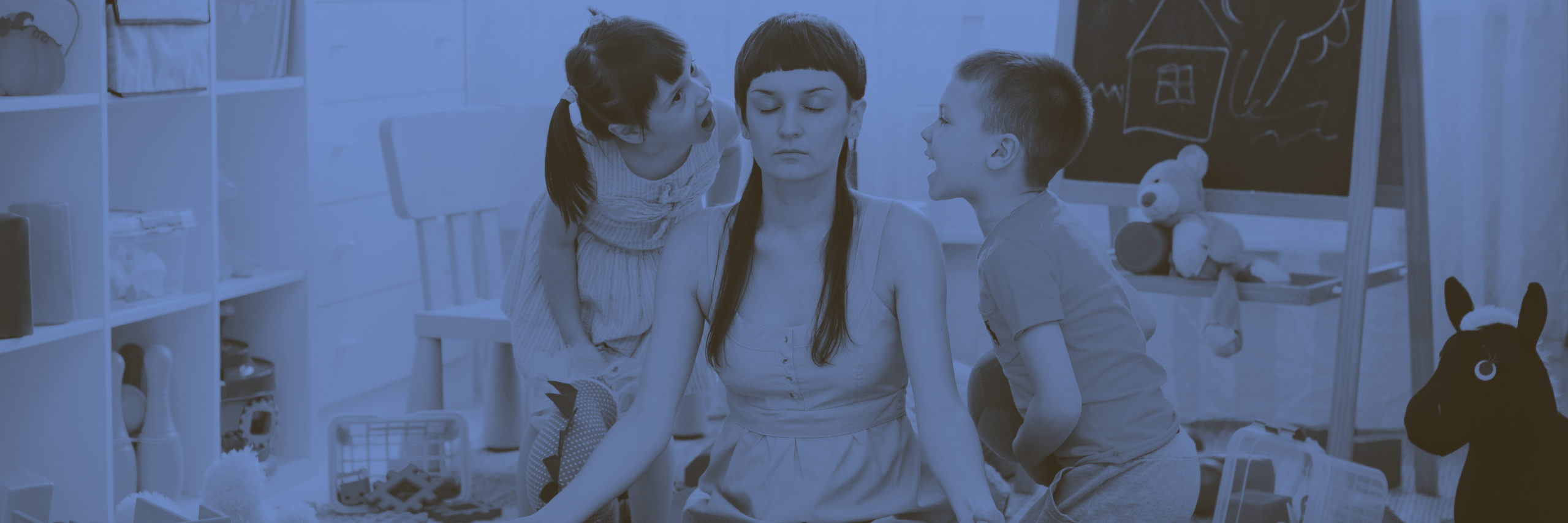Today I needed to pick up a few items at the grocery store on my way home from work. As I walked the aisles, I happened to follow a family whose precious little children managed to perpetrate the three “kid-tastrophes” common to all grocery stores, namely:
- Senseless and ear-piercingly-loud screaming
- Picking up items and demanding that they be purchased, refusing to take no for an answer
- Wandering away from mom and dad, and running up and down a random aisle for no apparent reason
I wasn’t surprised to see kids do these things. I’d seen it all before. I’m pretty sure I’d done it all before (that was a very long time ago). But what saddened me was to watch their mom and dad use some of the most counterproductive discipline strategies out there to try to inspire little Junior and Juniette to get back in line.
Don’t think I’m trying to criticize or critique this couple. I’m sure they’re doing the best they can, just like my wife and I. None of us are perfect at this parenting thing. But there are some discipline strategies that will never work. Here are the four I saw tonight… and here’s why they don’t work:
1. Disciplining with Attitude
I dare you… go to the mall and watch parents interact with their kids. You’re bound to see a parent yell, use sarcasm, get snippy, exaggerate, or just be downright mean to their kids in order to get them to behave better. These parents feel their kids need punishment to get in line, but instead of using consequences to discipline, they use attitude.
It’s almost like they’re trying to achieve some sort of emotional catharsis by raising their voice, losing their temper, or displaying contempt. In recent years, though, research has taught us that the idea that venting our emotions makes us feel better is a crock.
There are two powerful reasons why we shouldn’t use attitude to discipline:
The first is that it teaches our kids that when a person doesn’t get what they want, the way to respond is by flipping out. Sure, when our kids are acting out, we may feel that we have a perfectly reasonable reason to lose our tempers… they are misbehaving, after all. But to them, we’re just losing it because we’re not getting them to act the way we want. Thus, when they don’t get what they want, they will act like we do.
The second reason is because it doesn’t prepare them for real life. If as an eighteen-year-old, a policeman pulls over your kid for doing sixty in a forty-mile-per-hour zone, it’s highly unlikely that the officer will yell at your kid and berate them for speeding. Actually, they’ll treat your kid with respect. They’ll ask them, “Do you know why I pulled you over?” They’ll write your kid a ticket (the ticket is a consequence), and then they’ll say, “Have a nice day.”
That’s the way the real world works. When we step across a line, we face consequences, not attitudes. That’s why a consequence such as losing a privilege (“Sally, I’m sorry but you won’t be able to go to your friend’s birthday party next week…”) is much healthier as a discipline strategy than losing your cool.
2. Using Shame
When we deal with our kids’ missteps, it’s important that we not make it personal. Shame is what our kids feel when we give them the impression that they are bad because they did something bad. It’s a very damaging emotion to internalize, and it has far-reaching consequences later in life.
Research tells us that this type of shaming in childhood can result in a massive fear of failure as an adult. That kind of fear of failure can create problems in both work and relationships. Beyond that, it can teach our kids to think in very black-and-white terms. Because a person’s worth seems tied to their behavior, they can be very confused about their own personal value and the value of others.
[tweet_box design=”box_16_at” author=”Jonathan Hoover”]Shame-as-discipline doesn’t work. It ties our kids’ self-worth to their behavior.[/tweet_box]
3. Paying Bail
Some parents make a very crucial mistake in that they clean up after their kids’ mistakes. Instead of helping their kids face the consequences of their behavior (“Jason, you made a mess in your room. It’s time for you to clean it up now…”), they shoulder the consequences themselves. It doesn’t seem like a big deal when they’re little kids.
You pay for the candy bar they shoplifted without making them apologize to the store owner. You replace the prized toy that they broke in the middle of a temper tantrum. You feed and care for their pet, instead of making them stop playing video games and do it themselves.
Here’s the problem… over time, they will come to expect that we will bail them out for what they do wrong. Eventually, we may have to pay actual bail. While it may be important for us as parents to decide just how much of the natural consequences of their behavior they are able to shoulder at their current age, allowing them to experience no consequences teaches them that they can behave any way they want.
[tweet_box design=”box_16_at” author=”Jonathan Hoover”]If you always bail your kids out, you may someday have to pay actual bail.[/tweet_box]
4. Playing the God Card
Please don’t do this. Please don’t tell your kids to stop doing something because it makes God unhappy. There is a time and a place to talk to your kids about God’s standards, and His righteousness, and His desire for them to be obedient and wise. But using God as leverage in the attempt to get our kids to behave is manipulation. And it will back-fire on us. Here’s why: it gives our kids the impression that we are using God to get what we want.
You may be thinking… “but God does want my kids to obey me… and they need to know that.” I’m with you 100%. My point is that we need to teach them that truth in moments when they are not misbehaving. When we use those positive moments to share God’s standards, it comes across as caring. When we “play the God card” in negative moments in hopes of increasing our odds that they will start behaving, it comes across as a control tactic. We don’t need to go there.
Keep in mind that as our kids grow up, they are developing their understanding of who God is, and how He sees them. The last thing they need is to develop the impression that God is mad at them when they do something wrong and happy with them when they do things right (see the previous point about shame). We need to trust our own authority. We don’t need to use God as the exclamation point at the end of our instructions.
We do the best when we discipline the way God does. He is gentle with us, but firm. He motivates us by telling us what to do more often than He tells us what not to do. He gives us mercy when we fail, and His grace gives us a reason to keep trying. We are at our best as parents when we are imitating Him.
Ephesians 5:1-2 (NIV)
1Follow God’s example, therefore, as dearly loved children 2and walk in the way of love, just as Christ loved us and gave himself up for us as a fragrant offering and sacrifice to God.

